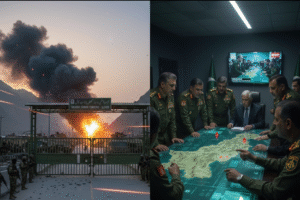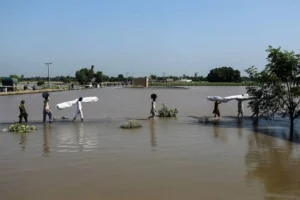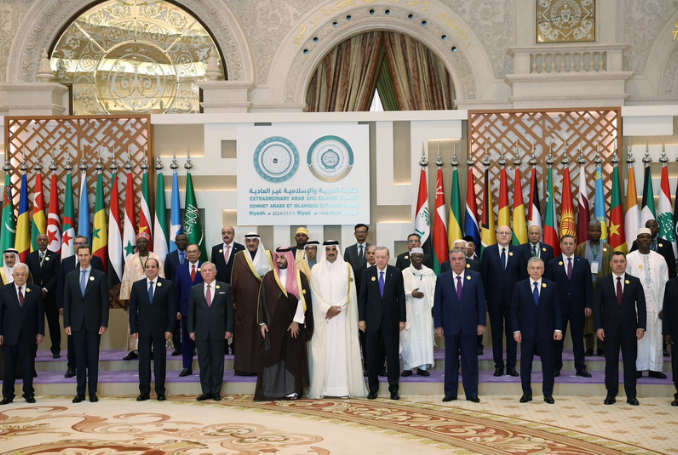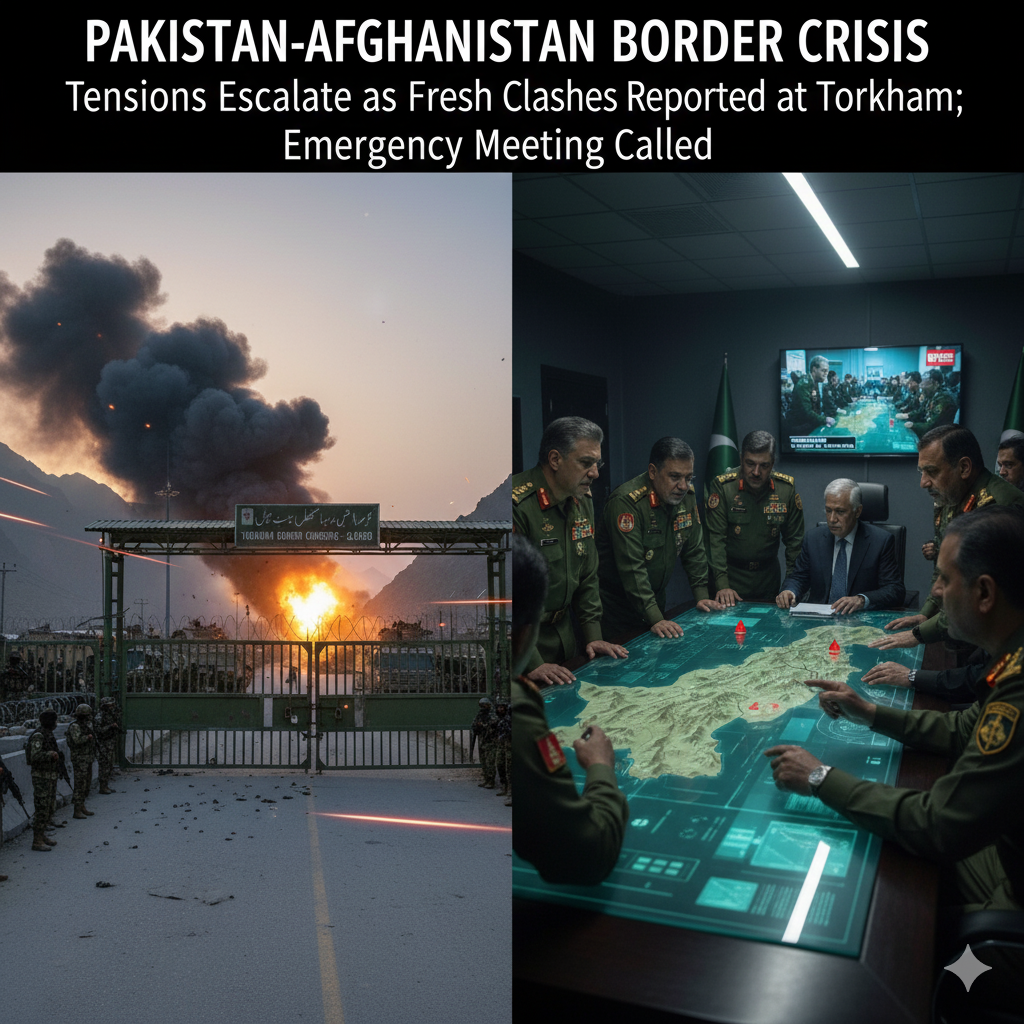The recent Arab Islamic Summit Proposal presented by Iraq’s Prime Minister has sparked wide debate across the Muslim world and beyond. By urging Muslim majority nations to form a NATO style Islamic security alliance, the Iraqi leader put forward an ambitious idea that could reshape regional and perhaps even global security policy. Experts are now analyzing whether this concept could become a reality or remain just another high-profile summit speech.
Background of the Summit
Held in the heart of the Middle East, the Arab Islamic Summit brought together leaders from across the Muslim world. The gathering was intended as a platform to strengthen ties, discuss economic challenges, and address regional instability. However, it was Iraq’s leader who stole the spotlight with his decisive proposal.
He argued that Muslim nations, if united under a shared defense umbrella, could counter both internal and external threats more effectively. The Arab Islamic Summit Proposal emphasized cooperation, intelligence sharing, coordinated defense strategies, and long term diplomatic engagement as cornerstones of this coalition.
Why the Proposal Matters
The Middle East and other Muslim-majority regions have long been vulnerable to outside interference and internal conflict. The Iraqi Prime Minister explained that regional instability cannot always be handled by relying on Western powers or international organizations. Instead, a united security system could place responsibility in the hands of Islamic nations themselves.
This Arab Islamic Summit Proposal carries symbolic significance too. For decades, global security alliances such as NATO have shaped international politics. Until now, no comparable body has emerged among Muslim states despite shared concerns. The proposal, therefore, touches on national pride, sovereignty, and the desire for self-determination, which resonated with many delegates.
Potential Benefits of Such an Alliance
Analysts say that if implemented effectively, the benefits could be considerable:
-
Collective Security: An attack on one Muslim nation could be treated as an attack on all, strengthening deterrence.
-
Resource Sharing: Pooling military, intelligence, and financial resources could reduce reliance on foreign powers.
-
Political Leverage: With a united front, Muslim nations could voice stronger opinions in global forums.
-
Regional Stability: Joint counterterrorism and crisis management strategies could prevent conflicts from spreading.
By aligning under the Arab Islamic Summit Proposal, states could gradually transition from fragmented national defense policies to a collaborative strategy with broader regional impact.
Concerns and Obstacles
Despite its promise, the idea is not without challenges. Historical mistrust, geopolitical rivalries, and economic disparities among Muslim states could hinder implementation. Different countries are aligned with different global powers, ranging from the United States to Russia and China. Reconciling these external alignments with a single Islamic alliance may prove immensely complex.
Moreover, previous attempts at regional military cooperation have largely failed due to leadership disputes and lack of political will. This raises doubts about whether the Arab Islamic Summit Proposal can genuinely translate into action rather than remain symbolic rhetoric.
Reactions From the Summit
Some countries voiced cautious optimism, noting the urgency of regional solidarity. Leaders of smaller nations who often feel sidelined by global powers welcomed the chance at equal participation in a collective arrangement. Larger powers, however, offered guarded responses, signaling they would need to evaluate deeper implications before committing.
Observers highlighted that while most nations recognize shared security concerns, the road from concept to execution remains uncertain. The introduction of the Arab Islamic Summit Proposal has nevertheless ignited meaningful dialogue on a topic that has often been avoided due to sensitivity.
Global Response
Outside the Islamic world, policy analysts and governments have been following the story closely. Western defense experts note the similarities with NATO’s foundational principles but remain skeptical about practical execution. Some fear that such a coalition could alter existing geopolitical balances, especially in regions where Western influence remains strong.
Russia and China, on the other hand, may view the idea as an opportunity to weaken NATO’s global influence by supporting an Islamic counterpart. Regardless of how powerhouses respond, the fact that the Arab Islamic Summit Proposal is being seriously debated illustrates a potential turning point in international security discussions.
Public and Media Debate
Across Arab states and Muslim majority countries, public reactions have ranged from excitement to skepticism. Youth, especially on social media, expressed hope that this could reduce dependency on outside forces. Meanwhile, media outlets across the region highlighted varying interpretations, some calling it visionary while others questioned its feasibility.
The term Arab Islamic Summit Proposal quickly became a trending topic online, with hashtags creating vigorous debate about whether Muslim nations are ready to shoulder such collective responsibility. Commentators repeatedly noted how global audiences are underestimating the determination of regional players to carve out independent security solutions.
Historical Context
It is worth noting that attempts at Islamic or Arab defense collaborations are not new. For instance, the Arab League once considered joint military structures, though these did not succeed due to internal differences. Similarly, the Islamic Military Alliance, announced several years ago, failed to evolve into a strong multilateral defense structure.
This legacy of partial or failed initiatives shadows the Arab Islamic Summit Proposal, making skeptics believe new energy might eventually fade away. However, some argue that changing geopolitical realities and rising regional risks create fresh momentum that might not be squandered this time.
Looking Ahead
The coming months will reveal whether leaders plan to convert words into action. Draft agreements, committees, and security frameworks may be drafted if sufficient consensus is reached. Behind closed doors, diplomatic negotiations will determine who leads the alliance, how financial contributions are shared, and what level of integration member states are willing to accept.
It remains uncertain whether the Arab Islamic Summit Proposal will evolve into a permanent security body, but even its introduction has elevated the conversation about Muslim-world strategic independence. Regardless of its future trajectory, the proposal has added fresh substance to debates on global security policy.

















